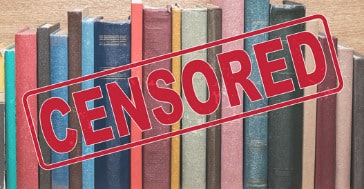For bookworms, reading a headline like “School District Uses ChatGPT to Help Remove Library Books” can be blood boiling. As Vulture put it earlier this week, it creates the sense that the artificial intelligence tool is once again “[taking] out its No. 1 enemy: original work.” And it is. Using ChatGPT’s guidance, the Mason City Community School District removed 19 titles—including Margaret Atwood’s The Handmaid’s Tale and Toni Morrison’s Beloved—from its library shelves. But there is another truth: Educators who must comply with vague laws about “age-appropriate” books with “descriptions or visual depictions of a sex act” have only so many options.
Signed into law by Governor Kim Reynolds in May, Iowa’s SF 496 is one of those “parental rights” bills that have become popular with Republican lawmakers of late and seek to limit discussion of sexuality and gender identity in schools. (Some have likened Iowa’s bill to Florida’s “Don’t Say Gay” legislation.) Its stipulations are a sweeping attempt at eradicating any discussion of sex or sexuality, and as Mason City School District’s assistant superintendent Bridgette Exman explained in a statement to the Mason City Globe Gazette, “it is simply not feasible to read every book and filter for these new requirements.”
Under the surface of this is a unique conundrum. Broad bans on sexual content that use vague language like “age-appropriate” already leave too much room for interpretation. It doesn’t matter if what’s in the book is the equivalent of softcore slashfic or a harrowing account of childhood molestation. Now, in Iowa, there’s a case of AI—which doesn’t always fully comprehend nuance in written language—being asked to interpret a law that already lacks nuance.
The result, then, is districts like Mason City asking ChatGPT, “Does [insert book here] contain a description or depiction of a sex act?” If the answer was yes, the book was removed from the district’s libraries and stored. But what about when the answer was neither yes nor no? The Bible, for example, “does contain passages that address sexual topics and relationships, but it generally avoids explicit descriptions of sexual acts,” according to ChatGPT. The Bible isn’t on the list of 19 books that got banned, but you can see how quickly this can get confusing. (David going to bed with Bathsheba isn’t a description of a sex act? Uh, OK.)
When I relate this story to Exman, she says she got similar answers, where ChatGPT would say a particular book had sexual depictions but then give context. The example she gives is Patricia McCormick’s Sold, about a young girl who gets sold into prostitution. “ChatGPT did give me what I would characterize as a ‘Yes, but’ answer,” Exman says, but “the law doesn’t have a ‘yes, but.’” Ergo, McCormick’s book is one of the 19 on her district’s list.
Reached by phone, Exman clearly seems frustrated by the new law. The Department of Education didn’t provide educators in Iowa with any guidance on implementing it, which is “extremely unusual,” but it also holds individual educators personally criminally responsible. Within a time frame of just a few weeks, using ChatGPT to check her gut instincts about which book might violate the law became the most viable and efficient way for Exman to show a good-faith effort to comply. Her goal is to start the school year, not invest a lot of time in this law that, she says, feels like a no-win situation.
While her methods produced 19 titles that the district is removing from the shelves of its nine school buildings, Exman has heard of other Iowa schools that are removing far more. Hers is one of the shortest lists. She attributes that to tight interpretation of the law and trying to keep as many books as possible. Other districts, she says, “might be trying to lean into making some assumptions about the intent of the legislature. When I look at the list of books that are commonly challenged, they’re not challenged because of sexual content, they’re challenged because they portray folks of the LGBT community or the way they’re perceived to be anti-police, or the way they deal with race issues,” she says. The law doesn’t require schools to do anything with those books, so “we’re not touching them—they belong in our libraries.”
ChatGPT, of course, can’t do anything about, or truly understand, the cultural discourse happening in the US around schools, parental rights, and the teaching of young people about gender identity and sexuality. What it can do is help Exman start her school year. “I’m a former English teacher, so this whole thing really hurts my heart, I want to be clear about that,” she says. “I’ve been called a communist pig and all kinds of stuff. I don’t want to do it.”
Article: How an Iowa school district used ChatGPT to ban books
